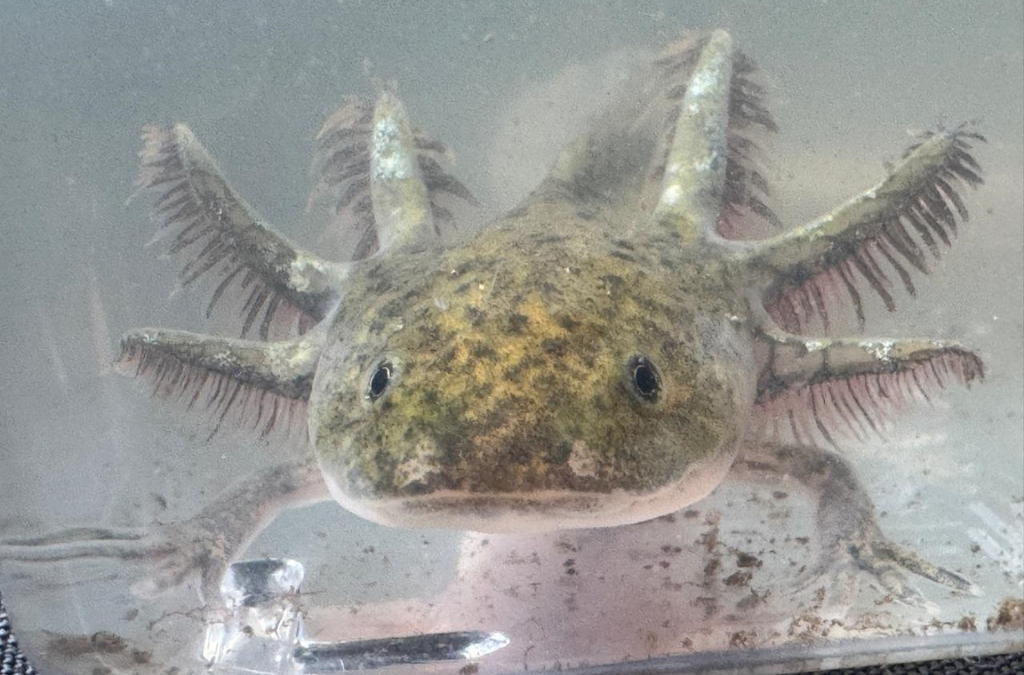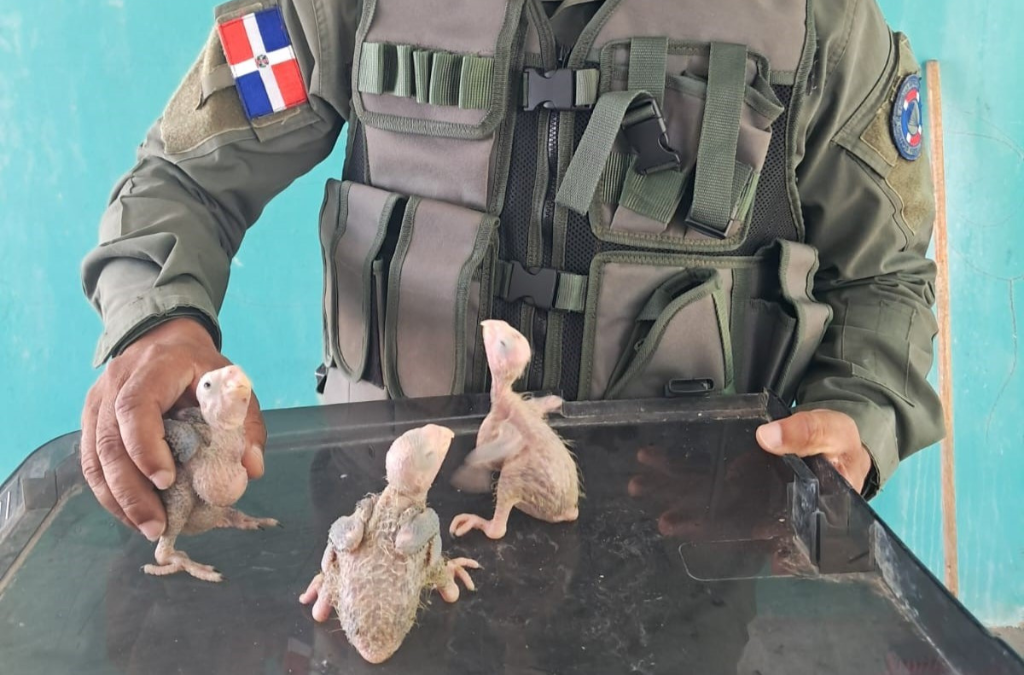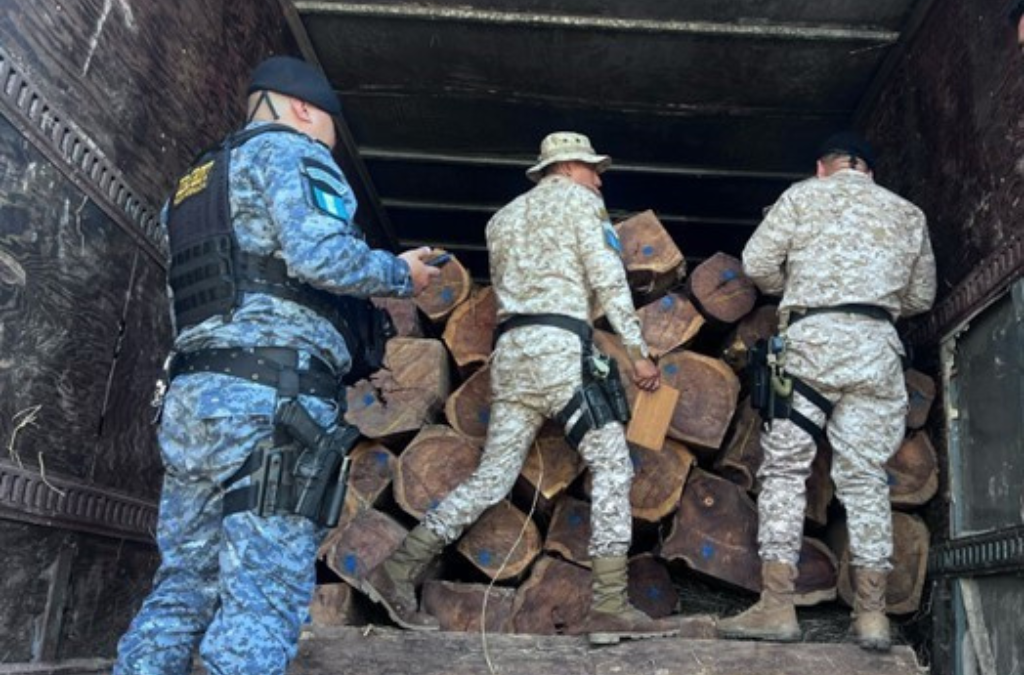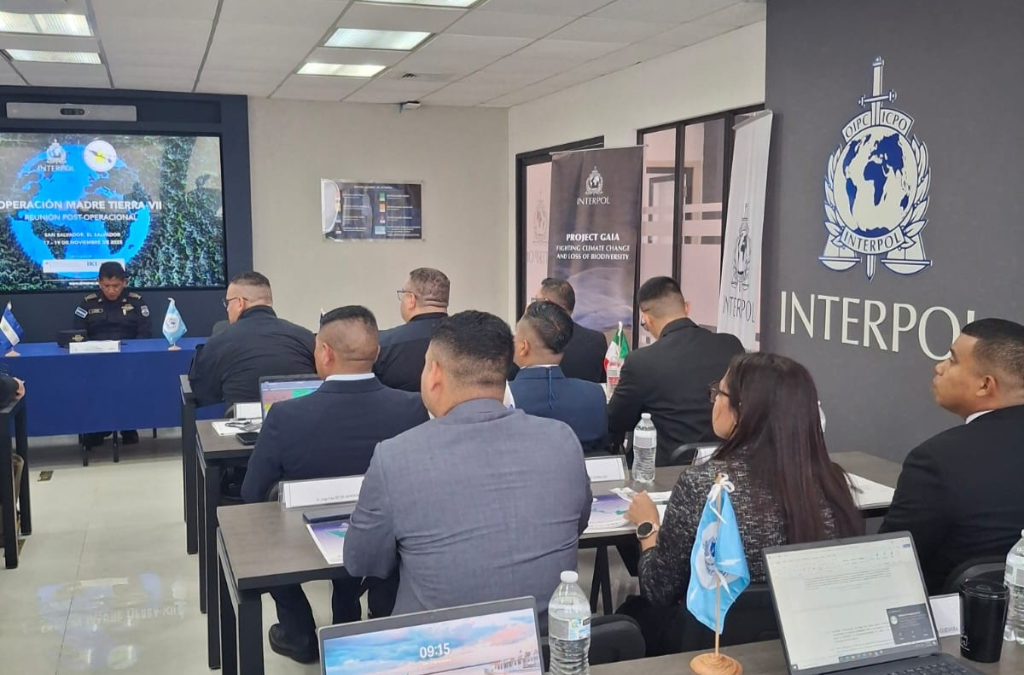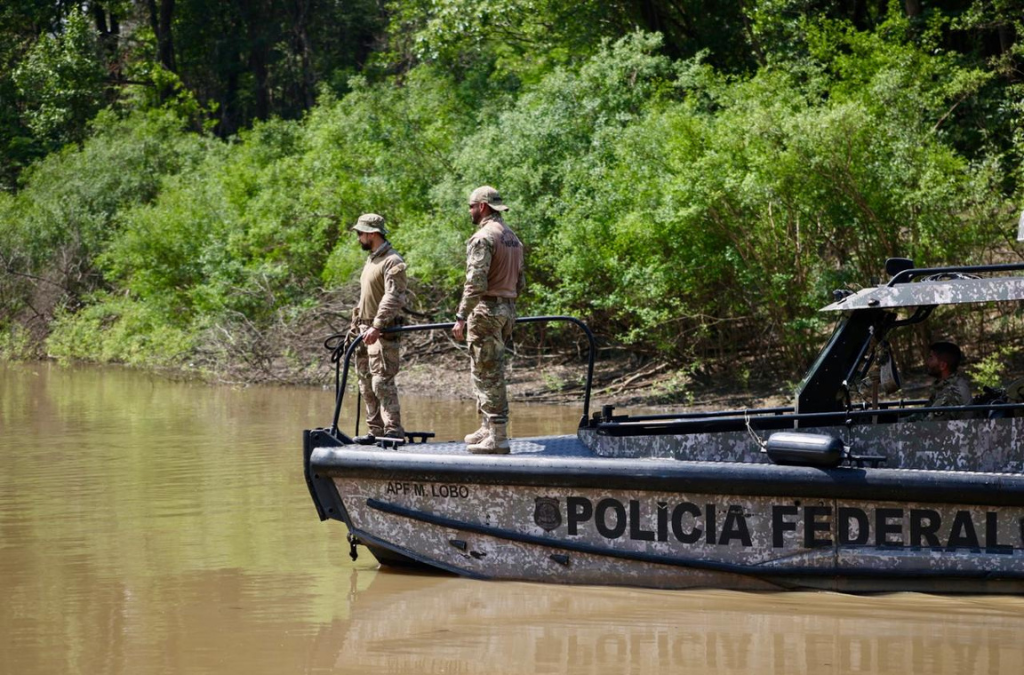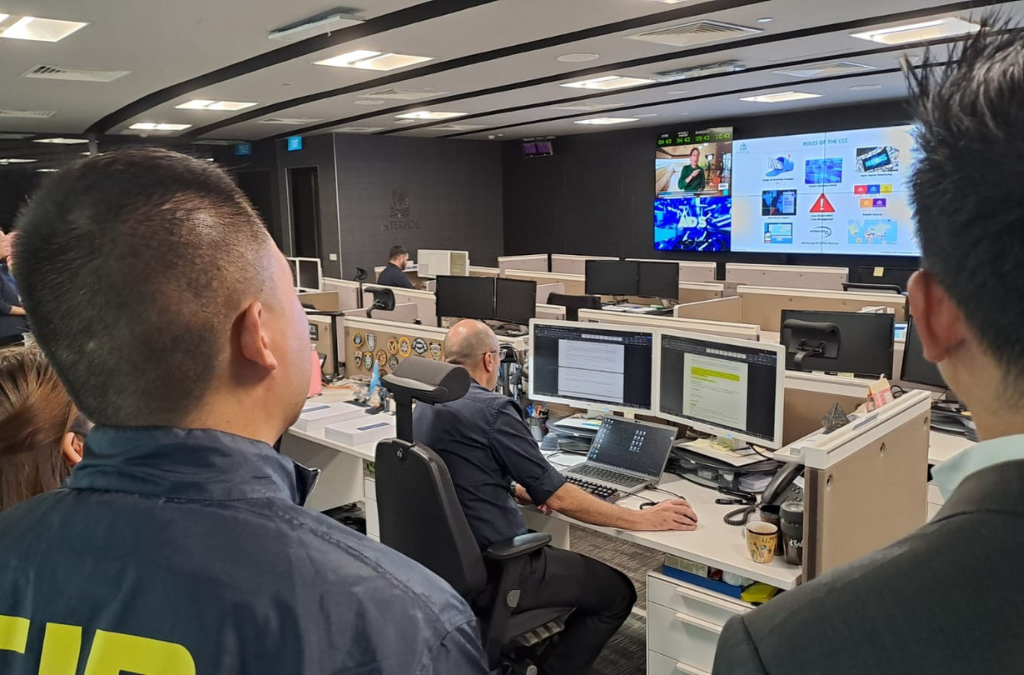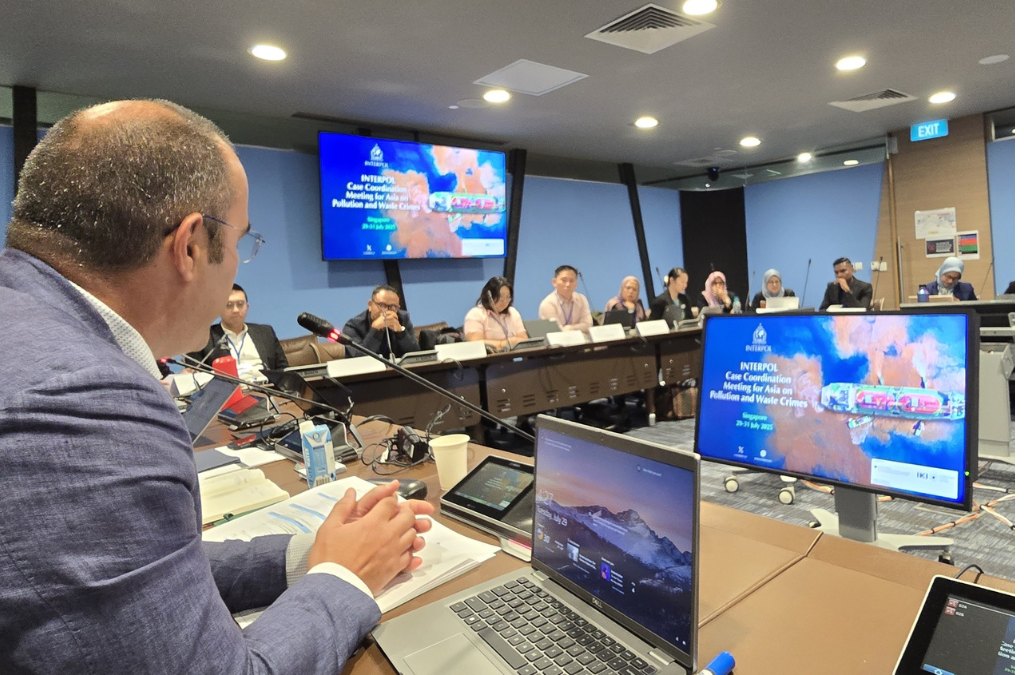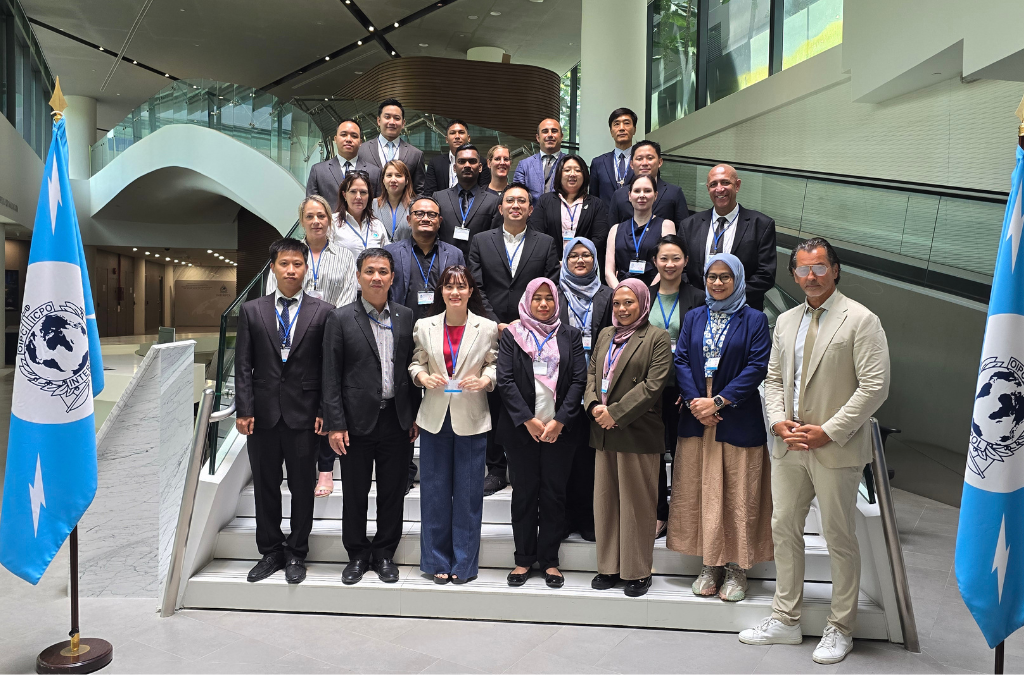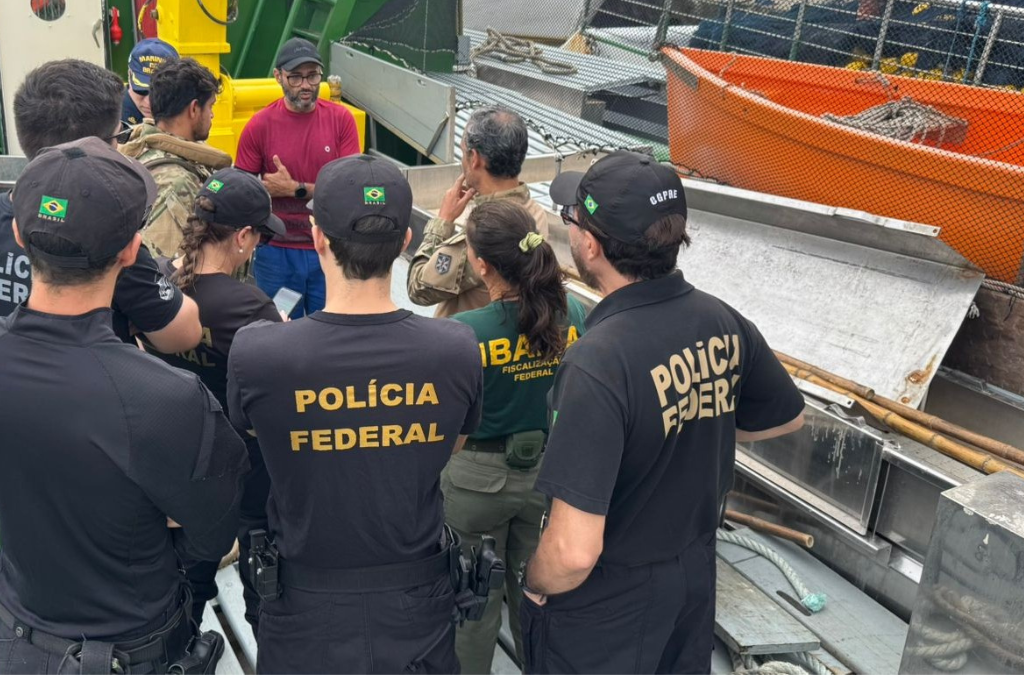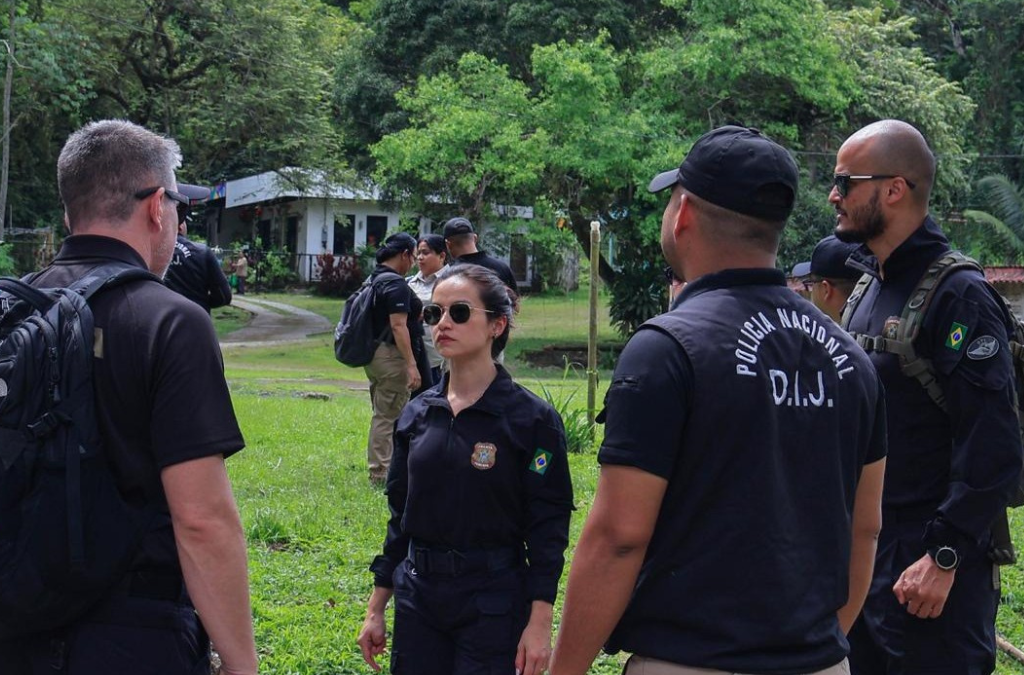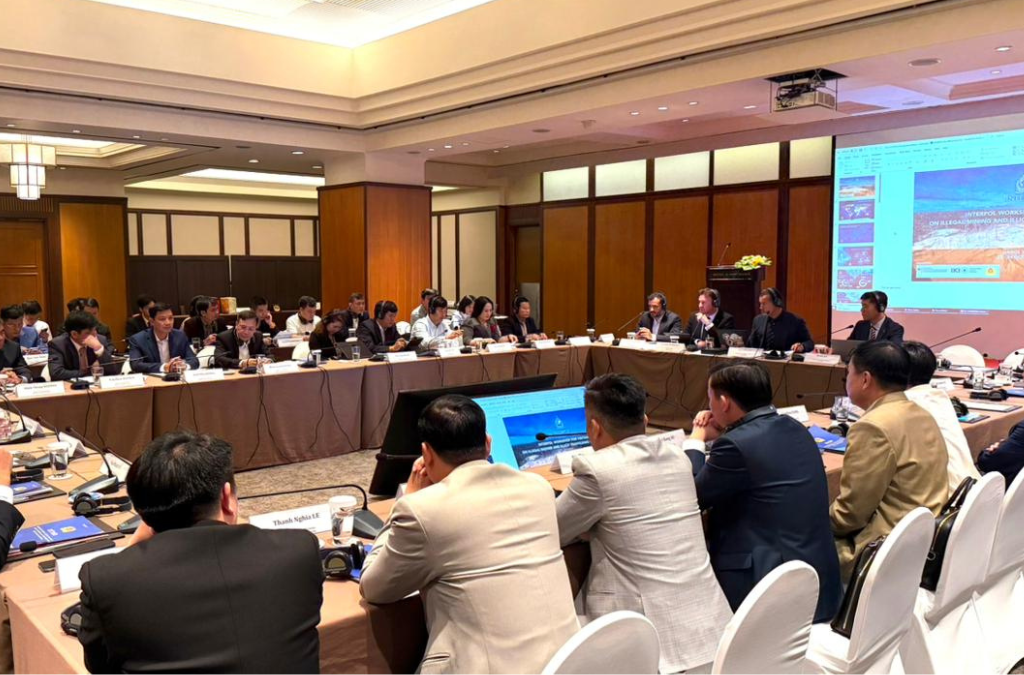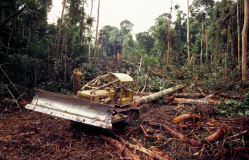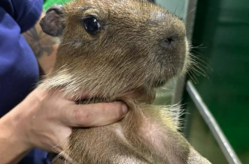Timeframe: 2024 to 2027
Budget: EUR 5 million
Donor: Germany (BMUKN - Federal Ministry for the Environment, Climate Action, Nature Conservation and Nuclear Safety)
Beneficiaries: some 50 countries in Asia-Pacific, Africa and the Americas.
The situation
Environmental crime is rapidly expanding, impacting not only biodiversity and climate, but also economies, governance, and security. INTERPOL and the UN Environment Programme estimated environmental crime’s value at between USD 91 and 258 billion annually, underscoring its massive scale and profitability.
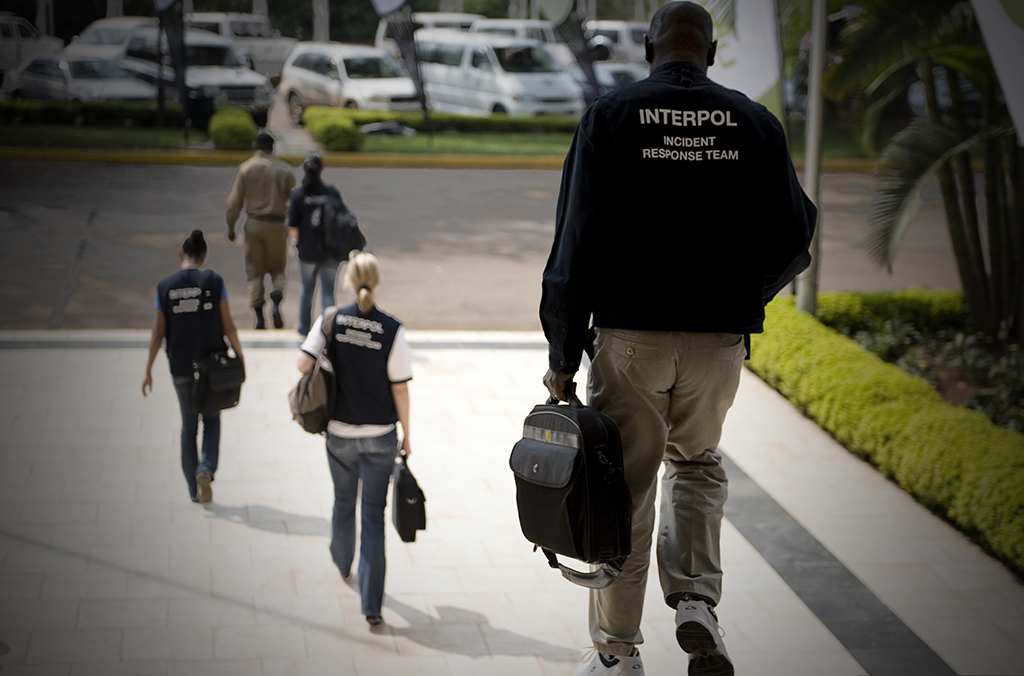
The scope of this threat spans five critical sectors (fisheries, forests, mining, pollution, and wildlife), each serving as a conduit for criminal exploitation and convergence with other serious offences. Criminal networks capitalise on the high-reward, low-risk nature of these activities, infiltrating weak regulatory systems and fuelling a range of crimes including corruption, money laundering, and tax evasion.
Such criminal activity not only destroys vital natural habitats but also undermines global efforts to halt climate change and protect biodiversity. Illegal fishing, deforestation, water and soil pollution, illicit extraction of minerals and poaching all erode ecosystems that are essential for sustaining life on our planet. This makes global coordinated law enforcement actions more critical than ever.
Project aim
This project aims to boost law enforcement efforts and international cooperation to detect and stop environmental crimes, thus contributing to the global fight against climate change and loss of biodiversity.
The project is structured around three main pillars of capabilities, intelligence, and operations:
- Improved capabilities of law enforcement authorities to detect and disrupt transnational environmental crimes.
- Increased availability and exchange of criminal data and intelligence concerning transnational environmental crimes.
- Enhanced operational actions of law enforcement authorities to detect and disrupt transnational environmental crimes.
In addition, the World Wide Fund for Nature (WWF) will contribute to the project by implementing initiatives to enhance protections for civil society organisations contributing to the detection and reporting of suspected environmental crimes.
Project activities
Under this project, INTERPOL will carry out a range of activities such as:
- Capacity building and mentoring: INTERPOL expert-driven sessions that can help develop and improve the capabilities of law enforcement authorities to detect and investigate environmental crimes.
- Criminal intelligence analysis: INTERPOL analytical reports and tools that can help identify and share information about suspected individuals and companies, hotspots, modus operandi, trafficking routes, and transnational connections to other countries.
- Case coordination meetings: INTERPOL meetings that can facilitate the discussion of environmental crimes cases identified, with a view to help uncover new leads and promote information sharing between countries.
- Operational Support Teams: INTERPOL expert teams that can provide technical and forensic support to investigations, such as extracting data from seized electronic devices, or assisting with collecting and testing samples from illegal shipments of wildlife, plants, and minerals.
- Multi-country operations: INTERPOL cross-border coordinated actions that can help identify new criminal trends, investigate transnational cases, locate individuals subject to INTERPOL notices and dismantle criminal networks operating regionally and/or globally.
Project GAIA 2025 highlights
- Regional Operation targeting environmental crimes
INTERPOL coordinated a regional operation targeting illicit trafficking of wildlife and forestry, as well as mining, pollution and fisheries-related crimes across nine countries in Latin America and the Caribbean*.
Operation Madre Tierra VII led to 225 arrests, the identification of over 400 suspected individuals, and numerous seizures of trafficked animals, plants and minerals, including CITES-protected timber and wildlife species.
INTERPOL shared a comprehensive analytical report on the operation with all participating countries, and a regional post-operational meeting to facilitate information exchange and discuss new leads was held in El Salvador.
*Colombia, Costa Rica, Dominican Republic, El Salvador, Guatemala, Honduras, Mexico, Nicaragua and Panama
- Strengthening forensic and operational capacities to detect and stop environmental crimes
Project GAIA supported the Brazilian Federal Police’s Clean Gold Programme (Programa Ouro Alvo), an initiative aimed at creating a regional forensic database to trace the origin of seized gold. We deployed three specialist Operational Support Teams to assist Brazil in:
- Collecting gold reference samples in the Yanomami indigenous territory to be added to Brazil’s gold database.
- Dismantling hundreds of dredges in a major Brazil-led operation against illegal gold mining in the Amazon Basin.
- Conducting laboratory testing and analysis on seized gold of suspected illicit origin, as well as of tissue and sediment samples suspected of mercury contamination.
INTERPOL also provided Brazil with equipment and software for gold sampling and analysis and facilitated the mentoring of Brazilian forensic experts on the use of cutting-edge specialised laboratory equipment.
Ongoing investigations in Brazil supported by these teams led to the seizure of almost 150 kg of gold, with an estimated value of over USD 10 million, and the dismantling of criminal networks behind illegal gold extraction worth an estimated USD 6.8 million.
- Facilitating intelligence sharing and providing analytical support to detect and dismantle transnational criminal networks
Project GAIA held three national case coordination meetings for Argentina, Costa Rica and Panama on illegal mining and fisheries-related crimes, and also hosted an intercontinental meeting at our Singapore headquarters to strengthen intelligence exchange and cooperation against pollution and waste crimes. The latter brought together nearly 30 law enforcement officers from Indonesia, Malaysia, Thailand, Vietnam, South Africa, Australia and Singapore.
INTERPOL also drafted two criminal analysis reports, the first in support of a transnational investigation on suspected plastic trafficking, and the second on global illicit mercury trafficking. The latter will provide the basis for planning potential coordinated law enforcement actions in different regions.
In addition, INTERPOL produced a diagnosis report for Panama, with recommendations to enhance operational actions and increase multi-agency cooperation to fight illegal mining and illicit gold trafficking.
- Mentoring law enforcement officers to detect and disrupt environmental crimes
Project GAIA organised national-level mentoring activities on environmental crime investigations for more than 100 law enforcement officers in three countries: Panama, Brazil and Vietnam.
The Panama City session was dedicated to the use of geospatial and investigative techniques for gold trafficking and associated crimes. It brought together more than 20 Panamanian officers from police, customs, border forces, prosecution, naval and air forces, ministries of environment and trade. Among their instructors were INTERPOL experts and specialists from the Brazilian Federal Police.
The session in Itajaí (Brazil) mentored nearly 30 Federal Police officers from 20 Brazilian states on vessels posing a high risk for fisheries crimes. The activity also involved representatives of Brazil’s IBAMA, ICMBio, Customs, Navy, and the Ministry of Fisheries, who actively participated in successful multi-agency coordinated actions conducted as part of practical sessions, comprising vessel-boarding exercises.
In Southeast Asia, the Hanoi session mentored almost 60 Vietnamese law enforcement officers on how to address illegal mining and illicit trafficking of critical minerals, including representatives from border regions with a high incidence of crimes.
Related documents






